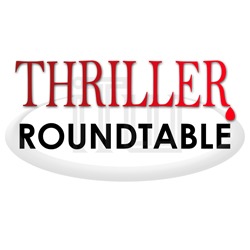

April 18th to the 24th: “Research. How much is enough?”
Research. How much is enough? How do you know which facts to include and which to leave out? Join ITW Members J. H. Bográn, Joe Moore, Marianna Jameson, Anna DeStefano, Matt Lynn, CE Lawrence and Dorothy McFalls as they discuss their approach to research.
J. H. Bográn, born and raised in Honduras, is the son of a journalist; he ironically prefers to write fiction rather than fact. José is the author of TREASURE HUNT, the first in the series of a professional thief that goes by the handle of The Falcon. Other works include short stories, contributor to The Big Thrill magazine, co-screenwriter for two TV serials and movie reviews for Honduran newspaper La Prensa.
Joe Moore is the co-author, along with Lynn Sholes, of the award-winning Cotten Stone thriller series: The Grail Conspiracy, The Last Secret, The Hades Project, and The 731 Legacy. Their newest thriller, The Phoenix Apostles, will be released June, 2011. Their novels have been translated into over 20 languages including Russian, Greek and Chinese. He is also a marketing & communications executive and two-time EMMY® winner with 25 years experience in the television postproduction industry. He has written articles for national and international trade magazines covering the field of professional sound recording and video. As a freelance writer, he reviewed fiction for the South Florida Sun-Sentinel, the Florida Times Union, and the Tampa Tribune. Joe serves on the International Thriller Writers board of directors as Co-President. He writes full time from his home in South Florida.
Anna DeStefano is the best selling author of romantic suspense for Harlequin and Silhouette and contemporary psychic fantasy for Dorchester Publishing. She’s won and finalled in numerous national contests, including twice winning the Romantic Times Reviewers Choice Award. She teaches craft workshops across the country and blogs regularly about both her writing experience and the fascination with metaphysics and parapsychology that led her to create her psychic-based Legacy Series. For more information, please visit Anna’s blog.
C.E. Lawrence is the byline of a New York-based suspense writer, performer, composer and prize-winning playwright whose previous books have been praised as “lively. . .” (Publishers Weekly); “constantly absorbing. . .” (starred Kirkus Review); and “superbly crafted prose” (Boston Herald). Silent Screams and Silent Victim are the first two books in her Lee Campbell thriller series. Silent Kills comes out later this year. Her other work is published under the name of Carole Bugge.
Matt Lynn is the author of a best-selling series of military thrillers, featuring a group of special forces soldiers working for a Private Military Corporation. ‘Death Force’ was published in 2009, ‘Fire Force’ in 2010, and ‘Shadow Force’ will be out in 2011. He is currently working on ‘Ice Force’, which will be out in 2012. Interviews and free short story can be found on his website.
New York Times bestselling author Marianna Jameson writes both contemporary romance novels and high-tech, eco-political thrillers. She spent twenty years as a technical writer and editor in the software, aerospace, and defense industries and keeps her feet wet and her imagination churning by freelancing in the corporate security and intelligence worlds. Her next book, DRY ICE, will be released in August 2011 by Tor/Forge. For more information about Marianna and her books, visit her website.
Dorothy McFalls resides in an artsy beach community in South Carolina with her sexy sculptor husband and their papillon pup (Iona) and mischievous kitten (Suki). An environmental urban planner by profession and wildlife biologist by education, she gave up her day job to devote her time to writing in 2001. She writes romantic adventure fiction, Regency romances, and short stories.
- LAST GIRL MISSING with K.L. Murphy - July 25, 2024
- CHILD OF DUST with Yigal Zur - July 25, 2024
- THE RAVENWOOD CONSPIRACY with Michael Siverling - July 19, 2024

